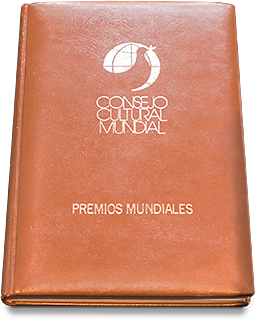Frequently asked questions about nomination
The 2025 Nomination call is open until January 31, 2025, midnight Central European Time (CET).
The WCC annually invites renowned institutions all over the world to submit nominations for the Awards. Information about the nominees and nominators are confidential.
Nominating Authorities for the Prizes
- The President or Prime Minister of a country
- Ministers of Science and Technology or Culture and Education
- Directors of academic institutes and organizations
- University leaders: Rector, President, Provost or Deans
- Members of the World Cultural Council
- Previous WCC prize winners
Candidates do not apply for prizes. They must be nominated by a valid authority. Self-nominations are not accepted.
Nominees for the Albert Einstein World Award of Science should be eminent scientists whose achievements can serve as an inspiration for future generations. Considerations will be given to individuals or institutions in one of the following fields Life Sciences, such as Neuroscience, Earth Science, Biology, Biochemistry, Medicine or Chemistry; or one of the Natural Sciences such as Physics, Mathematics or Astronomy. The prize is awarded every year.
A candidate for the José Vasconcelos World Award of Education should be a renowned educator, an authority in the field of teaching, or someone who has brought about visionary development in education policy. Through their work, the individual or team should have had a significantly positive influence on the quality and reach of teaching and learning in our society. The prize is awarded every second year.
A candidate for the Leonardo da Vinci World Award of Arts should be a renowned artist, sculptor, painter, writer, poet, cinematographer, photographer, architect, musician or other performing artist, whose work constitutes a significant contribution to the artistic legacy of the world. The prize is awarded every second year.
In addition to considering the candidate’s breakthrough achievements, the jury will also take into account the service which each candidate has made to humankind. This may take various forms. For example:
- Promoting academic excellence and identify role models who inspire future generations to contribute to a better world.
- Encouraging sustained leadership.
- Enhancing a culture of altruism.
Self-nominations are not accepted.
Renomination of previous nominees is possible and encouraged.
The members of the WCC comprise the Interdisciplinary Jury.
New jury members are invited following the recommendation of a current jury member or the institution hosting an Award Ceremony.
The integrity of these awards is bolstered by the fact that the jury is comprised of world-renowned personalities and academic leaders in their respective fields, and includes various Nobel laureates.
The pre-selection and final evaluation process takes approximately six months.
Please ensure that you adhere to the guidelines as set out when preparing nominations. These WCC award nomination guidelines are in place to uphold the integrity of the selection process and to ensure that the most suitable candidates are chosen for the recognition. It is imperative that all required material for a nomination is provided including qualifications, experience, skills, and notable impact and achievements, are provided at the time of nomination. This approach promotes fairness and transparency and allows the jury to make informed decisions. Following these guidelines will result in a more structured and effective selection process, leading to better outcomes for all involved.
Please see Nomination submission outline for details.
Yes, it is possible for an institution to submit several nominations. However, it is recommended that only one candidate for each Award is submitted.
No, it is not possible to nominate someone for a posthumous recognition.
If you have further questions, please contact us:


